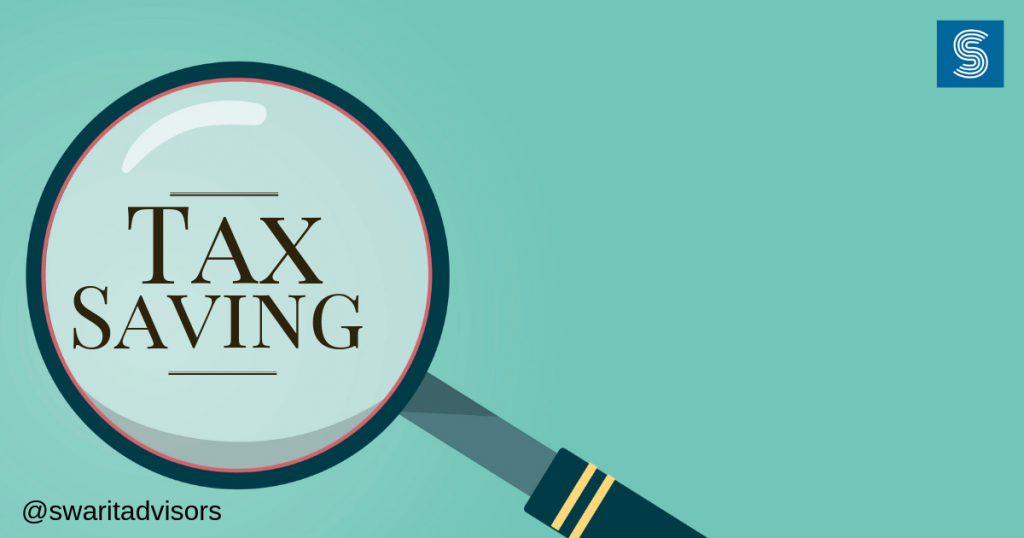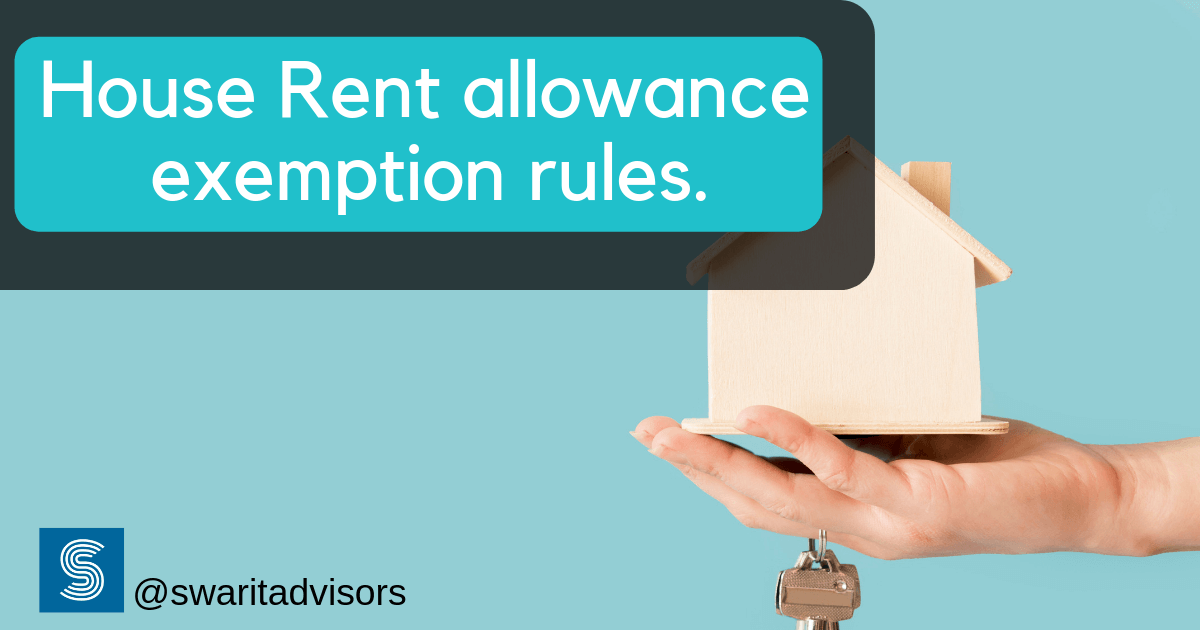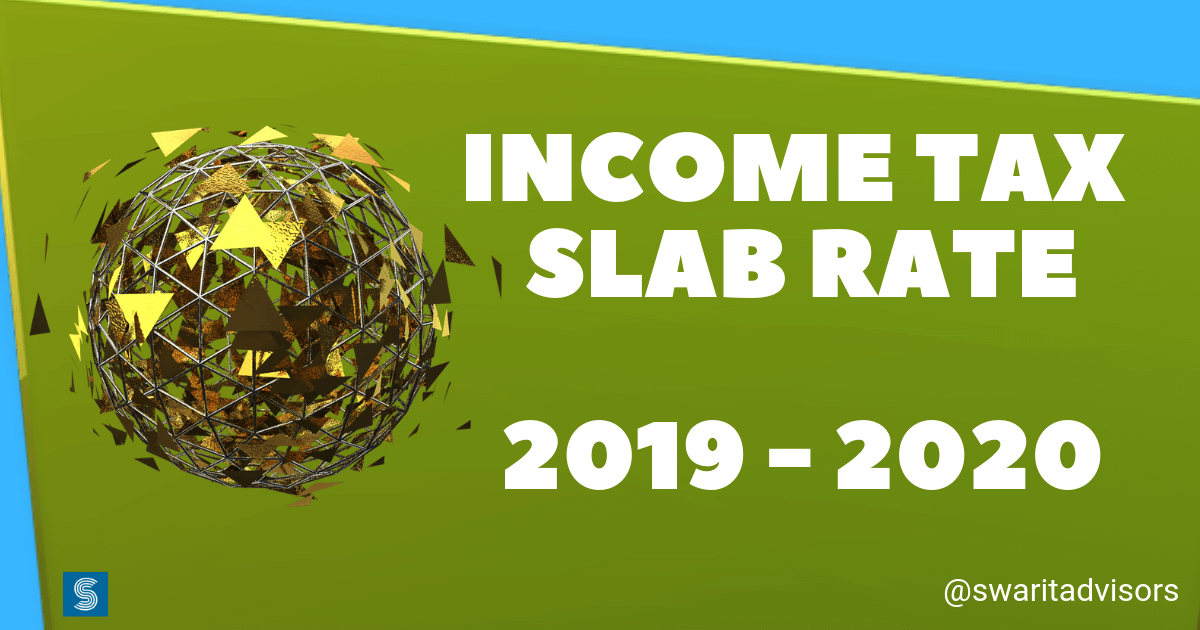Tax Saving Options beyond Section 80C of the Income Tax Act

Swarit Advisors | Updated: Feb 15, 2019 | Category: Income Tax
The process of tax saving usually includes showing your income as part of an investment which is taxed at a lower rate.
Every taxpayer, when thinks about income tax saving then section 80C of the Income Tax Act strikes in mind. Section 80C is one of the most preferred sections for tax-saving among the taxpayers.
However, there are several other options beyond section 80C through which will help you to reduce your tax liability significantly. In this blog, we will try to enrich your knowledge about tax saving options beyond section 80C.
Table of Contents
Tax Saving Option under Section 80C
Section 80C offers investment options, in case, you seek to reduce your liability. Section 80C is meant for deduction of tax through which a person can get the benefit of deduction by making an investment in the category as mentioned in the section. The benefit of section 80C is available to the extent of the taxable limit of Rs.1,50,000.
Why is the tax saving option under section 80C so popular?
When it comes to saving tax, most of the people pick and choose section 80C. The main reason to choose this section is that the section allows to save up to Rs. 1.5 lakh per annum. If you fall under tax slab, then you can save 1.5 lakh under various schemes of this section. Schemes may include Equity Linked Saving Scheme (ELSS), PPF, Life Insurance, fixed deposit etc.
What is the drawback of section 80C?
Despite being so popular among all other schemes, section 80C comes up with some drawbacks.
For example, the Equity Linked Saving Scheme(ELSS) is one of the schemes that most taxpayers have faith in. However, ELSS comes up within a lock period of 3 years. Thus, this is not suitable and favourable for everyone.
Similarly, the PPF scheme contains the saving of 1.5 lakh per annum. Moreover, under this scheme, the lock-in period is 15 years. 15 year is too long, and this is not at all a suitable deal for everyone.
List of Tax saving option other than Section 80C:
There are several tax saving options other than section 80C to help a person from tax exemption. So below is the list of investment options other than section 80C which help you to save tax:
| Section 24(b) | Deduction of Interest on House Loan |
| Section 80CCD | National Pension Scheme |
| Section 80D | Premium paid for medical insurance |
| Section 80DD | Health-related expenses of a disabled dependent |
| Section 80DDB | Expenditure on the treatment of specified illness or disease |
| Section 80E | Interest on Education loan |
| Section 80EE | Deduction on home loan interest |
| Section 80G | The contribution made towards religious institutions like a temple, church etc. |
| Section 80GG | Rent paid accommodation |
| Section 80GGA | Donation to specified institutions |
| Section 80GGC | Donation to the political party |
| Section 80QQB | Royalty income to the author |
| Section 80RRB | Royalty income from patents |
| Section 80 TTA | Interest on savings account |
Now we will elaborately discuss how the above sections mentioned in tabular form help you in case of tax saving.
- Section 24(b) – Deduction of Interest on House Loan
U/s. 24 (b) of the Income Tax Act, interest on house loan is eligible for tax deduction. If the property is a self-occupied property, then, under the provisions of section 24(b), you are eligible to get the deduction on interest of up to Rs.2 Lakh. However, if the property is not self-occupied, then the full deduction is available for you.
- Section 80CCD – (National Pension Scheme)
As per section 80CCD, taxpayers can claim an additional deduction of Rs.50,000 every year for the contribution made towards National Pension Scheme [1] .
- Section 80D – (Premium paid for medical insurance)
- Under this section, payment of medical insurance premium is now eligible for tax benefit.
- If you paid a premium towards medical policies for self, spouse and dependent children, then you become eligible for a tax deduction of Rs.25,000 every year.
- In case, you and your partner are above than age of 60 years then the tax deduction limit is Rs.30,000.
- If you paid a premium of medical policy for your parents, then an additional deduction of Rs. 25,000 every year will be allowed to you.
- Section 80DD – (Health-related expenses of a disabled dependent)
- As per the norms of the section, any expenses that were incurred on the health of a disabled family member of any taxpayer are qualified for
- Under this section, if a tax payer belongs to the Hindu undivided family is entitled to claim a deduction of health-related expenses.
- However, the limit for such deduction is Rs.75,000 and in case of severe disability, the limit is Rs.125,000.
- Disability includes several illness such as cerebral palsy, autism etc.
- Section 80DDB – (Expenditure on the treatment of specified illness or disease)
- According to this section, if a taxpayer incurs expenditure on the treatment of dependent parents, spouse, children for curing specified illness/disease, then he is eligible for
- Specified illness or disease includes cancer, kidney failure.
- Under this section, the amount allowed as a deduction is lower than the actual expenditure.
- The limit is Rs.60,000, in case the age of the patient is more than 60 years old.
- For 80 years old patient, the limit is Rs. 80,000.
- This benefit is not available for Non-resident Indians.
- Section 80E – (Interest on Education loan)
- As per this section, interest paid on the educational loan is eligible for deduction.
- There isn’t any limit on the total amount of interest.
- The deduction is available for eight years starting from the year in which the taxpayer made the interest payment.
- Section 80EE – (Deduction on home loan interest)
- In addition to deduction under section 24(b), first time home buyers can claim an additional deduction of Rs.50,000 under the section 80EE.
- First time home buyer is eligible to claim deduction subject to fulfillment of certain conditions and these conditions are:
- The value of the house shall not exceed Rs.50 lakh
- The loan amount must be less than Rs.35 lakh
- The loan needs the approval of a reputed financial body
- The property must be registered on the name of the taxpayer
- Section 80G – (Contribution made towards religious institutions like a temple, church etc)
- Where a taxpayer donates some amount to any religious institutions, then he can claim the benefit of deduction u/s. 80G of the Income tax act.
- However, such donation shall not exceed 10 percent of the adjusted total gross income.
- Religious institutions include temple, church, gurudwara etc.
- Section 80GG – ( Rent paid accommodation)
- Where a taxpayer does not receive any HRA (House rent allowance) as part of his/her salary, then, u/s. 80GG, the taxpayer can claim deductions for the rent paid for accommodation.
- The deduction amount will be the lower on one of the following:
- 5,000 per month
- Rent paid over and above 20 percent of the total income
- 25% of the gross total income
- Section 80GGA – (Donation to specified institutions)
- In case, a taxpayer donated the amount to an institution carrying on scientific research, then the amount became eligible for deduction under section 80GG.
- For deduction, the institution must get the approval of Govt under sections 35(1)(ii), 35(1)(iii), 35CCA, 35CCB).
- Taxpayers can claim deductions over and above Rs10,000 in case the contribution was made by any mode other than cash.
- Deduction u/s. 80GGA is not meant for the taxpayer who earns income from the business.
- Section 80GGC – (Donation to a political party)
- Under this section, donations made to political party qualify for tax deductions
- However, section 80GGC does not say anything about the limit of the donation amount.
- Section 80QQB – (Royalty income to the author)
- If the taxpayer is an author of a book and received payment in royalty either in a lump sum or otherwise, then he can claim that amount as a deduction under this section.
- A taxpayer can claim deduction up to a maximum limit of Rs.3 Lakh.
- In case the taxpayer did not receive the royalty as a lump sum then the deduction amount restricts to 15 percent of the book’s revenue in that particular year.
- Section 80RRB – (Royalty income from parents)
- If a taxpayer is a patentee and registered any patent after April 1, 2003, also received royalty income for it, then the taxpayer can claim deduction u/s80RRB for the amount received as royalty.
- A taxpayer can claim deduction up to Rs.3 lakh.
- Section 80TTA – (Interest on a savings account)
- When a taxpayer earns income from the savings bank account, then under section 80TTA, he can claim a deduction with respect to such amount.
- A taxpayer shall claim deduction up to a maximum amount of Rs.10,000.
- This income is not exempted and a taxpayer in the income tax return has to mention this amount under the head income from other sources.
Conclusion
Tax savings provisions under section 80C are not enough to save an adequate amount of taxes. However, you can save more tax by using other income tax provisions. Apart from 80C, there are several other sections which can help you to benefit from the tax exemptions.
Swarit Advisors provides the most affordable services. We put our best effort to solve the queries of our clients. If you have any doubt regarding the tax saving options beyond 80C, then kindly contact us.
Also, Read: Disadvantages and Demerits of GST.














